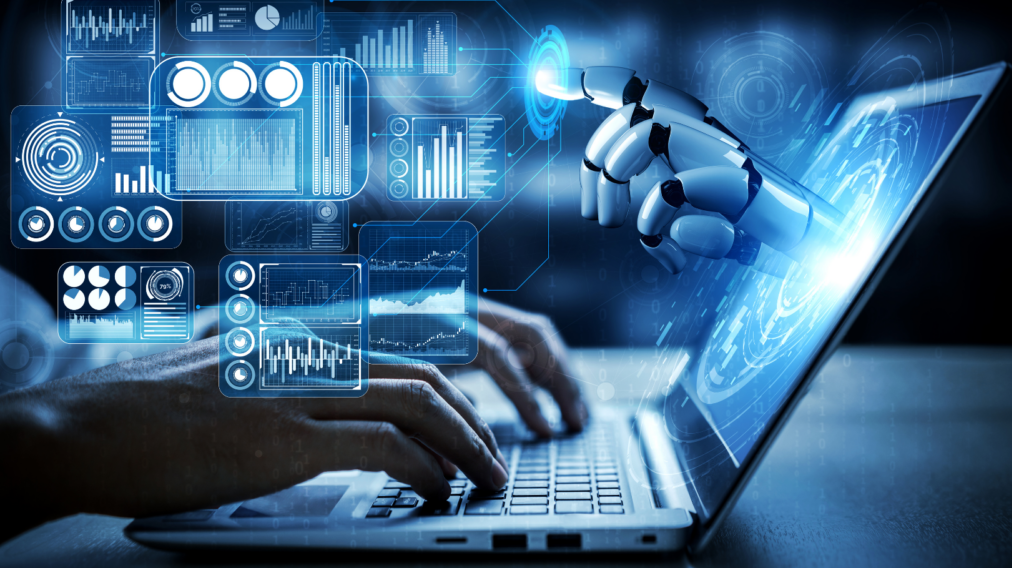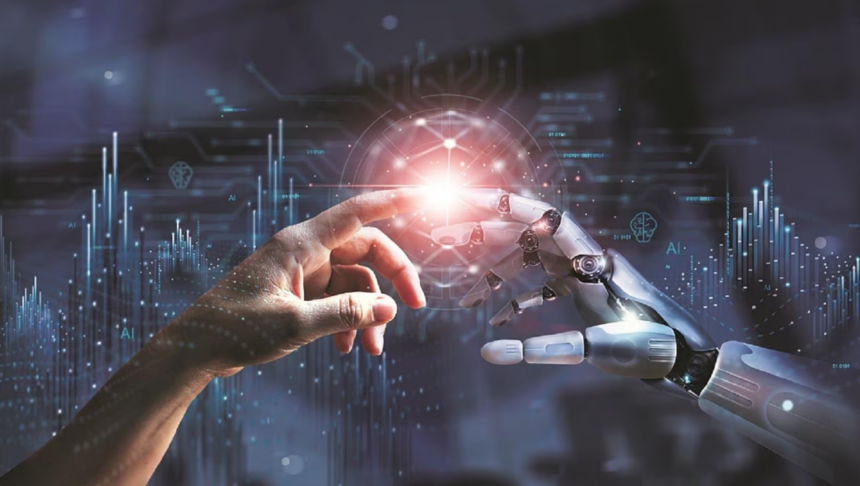In the rapidly evolving landscape of technology, Artificial Intelligence (AI) and Machine Learning (ML) have emerged as groundbreaking forces that are reshaping industries across the globe. These technologies are not just buzzwords; they are revolutionizing the way we live, work, and interact with the world around us. From enhancing customer experiences to optimizing operations, AI and ML are driving remarkable advancements across various sectors.

Unleashing the Power of AI and ML
At the heart of AI and ML is the ability to process and analyze massive amounts of data, identifying patterns and making intelligent decisions without human intervention. This dynamic duo has opened doors to unprecedented opportunities, empowering businesses to make data-driven decisions and innovate in ways previously unimaginable.
Advantages and Disadvantages of Artificial Intelligence and Machine Learning
Artificial Intelligence and Machine Learning are powerful technologies that offer a wide array of benefits, but they also come with their own set of challenges and drawbacks. Let’s explore the advantages and disadvantages of AI and ML:
- Advertisement -
Advantages:
- Efficiency and Automation: One of the primary advantages of AI and ML is their ability to automate tasks and processes, leading to increased efficiency. Tasks that would take humans hours or even days to complete can be done in a fraction of the time with AI algorithms.
- Data Analysis and Insights: AI and ML excel at processing vast amounts of data quickly and accurately. This allows businesses to gain valuable insights from their data, leading to better decision-making and strategic planning.
- Improved Productivity: By automating routine tasks, AI and ML free up human employees to focus on more creative and strategic aspects of their work. This can significantly boost productivity within organizations.
- Enhanced Customer Experiences: AI-powered chatbots and virtual assistants provide 24/7 customer support, personalized recommendations, and efficient problem-solving. This leads to improved customer satisfaction and loyalty.
- Predictive Analytics: AI and ML can analyze historical data to predict future trends and outcomes. In industries like finance, this capability is invaluable for risk management and investment decisions.
- Medical Advancements: In healthcare, AI and ML are revolutionizing diagnostics, treatment plans, and patient care. From early disease detection to personalized medicine, these technologies are saving lives and improving outcomes.

Disadvantages:
- High Costs: Implementing AI and ML systems can be costly, especially for smaller businesses. The initial investment in infrastructure, software, and training can be a barrier for some organizations.
- Data Privacy Concerns: AI and ML rely heavily on data, which raises concerns about privacy and security. There is the risk of sensitive information being compromised or misused if not properly protected.
- Job Displacement: Automation powered by AI and ML can lead to job displacement in certain industries. Routine tasks that were once performed by humans may now be done more efficiently by machines, leading to layoffs or shifts in job roles.
- Algorithm Bias: AI algorithms are only as good as the data they are trained on. If the training data is biased or flawed, it can lead to biased outcomes and decisions. This can have serious implications, especially in areas like hiring and lending.
- Complexity and Dependence: AI and ML systems are complex and require specialized knowledge to develop and maintain. Organizations may become dependent on these technologies, making it challenging to revert to manual processes if needed.
- Ethical Considerations: There are ethical dilemmas surrounding AI and ML, such as the use of autonomous weapons, invasion of privacy, and the potential for AI to outsmart human control. These issues raise important ethical questions that need careful consideration.
CCbet App Download APK for Android & ios Latest Version
Transforming Industries
The impact of AI and ML spans a wide range of industries, bringing about significant changes and efficiencies:
1. Healthcare: In the realm of healthcare, AI and ML are transforming diagnostics, treatment plans, and patient care. From predictive analytics that anticipate disease outbreaks to personalized medicine based on genetic data, these technologies are revolutionizing the healthcare landscape.
2. Finance: The financial sector has embraced Artificial Intelligence and Machine Learning to enhance fraud detection, risk management, and investment strategies. Algorithms powered by these technologies can analyze market trends in real time, enabling quicker and more accurate decision-making.
3. Transportation: Artificial Intelligence AI is reshaping transportation with the advent of autonomous vehicles. Machine learning algorithms enable these vehicles to learn from their environment, making split-second decisions to navigate roads safely and efficiently. Additionally, AI-powered traffic management systems optimize traffic flow, reducing congestion and emissions.
4. Customer Service: Chatbots and virtual assistants are just the tip of the iceberg when it comes to AI in customer service. These intelligent systems provide 24/7 support, personalized recommendations, and efficient problem-solving, enhancing customer satisfaction and loyalty.
5. Manufacturing: AI-driven predictive maintenance is revolutionizing the manufacturing sector. By analyzing equipment data, AI can predict when machines are likely to fail, allowing for proactive maintenance and minimizing costly downtime.
Ethical Considerations and Responsible AI
As AI and ML continue to advance, it is crucial to address ethical considerations. Questions about data privacy, algorithm bias, and job displacement are at the forefront of discussions surrounding these technologies. Responsible AI development includes transparency, fairness, and accountability to mitigate these challenges.
The Future of AI and ML
The future of AI and ML holds immense promise. As technology continues to advance, we can expect further integration into our daily lives. From smart homes that adapt to our preferences to AI-powered medical breakthroughs, the possibilities are endless.
Conclusion
Artificial Intelligence and Machine Learning are not just technologies; they are catalysts for a transformative era. Industries worldwide are leveraging these technologies to innovate, optimize, and create a brighter future. As we navigate this technological revolution, it is crucial to embrace the potential of AI and ML while remaining mindful of the ethical considerations that come with such powerful tools. The future is undoubtedly exciting as we witness AI and ML continue to reshape our world.


